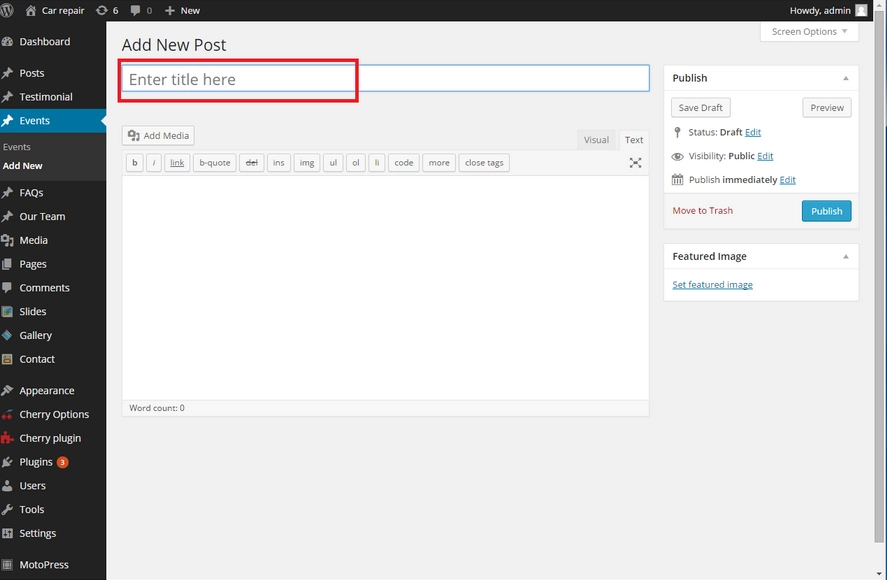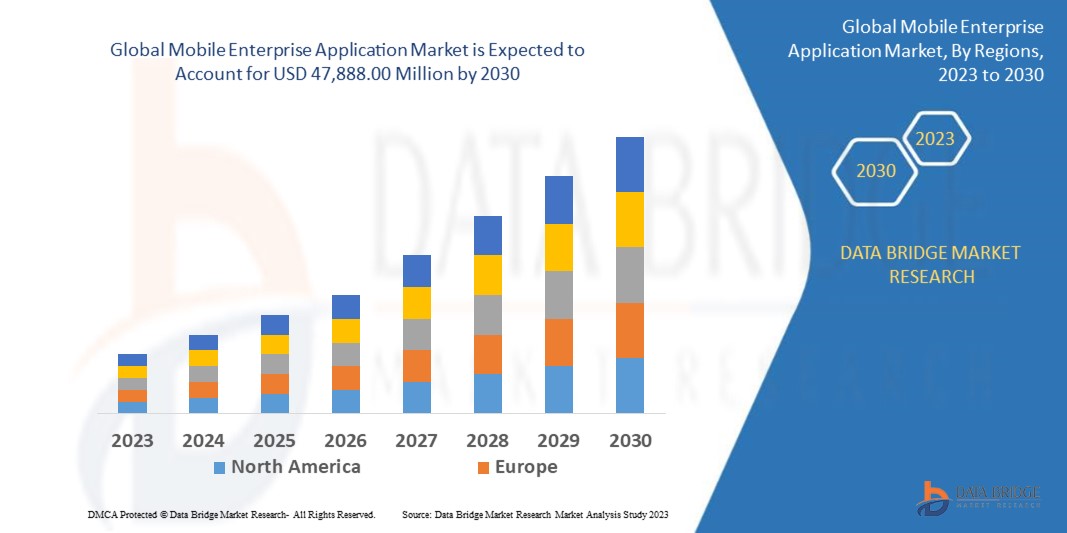Introduction
The Bring Your Own Device (BYOD) trend has been making significant waves in the business world in recent years. This phenomenon allows employees to use their personal mobile devices, such as smartphones and tablets, for work-related tasks and activities within the corporate environment. As BYOD gains traction, it has a profound impact on various aspects of business operations, including the realm of mobile enterprise applications.
This introduction sets the stage for an exploration of how BYOD is reshaping the landscape of mobile enterprise applications. It highlights the growing prevalence of BYOD policies in workplaces and the implications this trend has for businesses and their mobile app strategies. In an era where mobility is synonymous with productivity, understanding the interplay between BYOD and mobile enterprise applications is crucial for companies seeking to leverage this paradigm shift to their advantage.
What is a mobile enterprise application?
The term “mobile enterprise applications” refers to a particular class of application that offers analytics of various data and information to assist businesses in making choices about finances, manufacturing, operations, and production. These applications are frequently used in the manufacturing, finance, energy, and utility sectors. The global market for mobile enterprise applications benefits from digitization, rising user demand for services similar to those available on PCs, and rising need for real-time information capturing.
Key characteristics and features of mobile enterprise applications include:
- Business-Centric: Mobile enterprise applications are designed to support and facilitate business processes and functions. They are often customized to align with an organization’s workflows and requirements.
- Cross-Platform Compatibility: Many mobile enterprise apps are developed to work on multiple mobile platforms (iOS, Android, etc.) to ensure accessibility for a diverse user base.
- Security: Mobile enterprise applications prioritize data security and often incorporate robust encryption, authentication, and access control measures to protect sensitive business information.
- Integration: They can seamlessly integrate with existing enterprise systems such as Customer Relationship Management (CRM) software, Enterprise Resource Planning (ERP) systems, and databases.
- Offline Functionality: Some mobile enterprise apps are designed to function even when users are offline, ensuring uninterrupted access to critical data and functionality.
- User Management: They often include user management features, allowing administrators to control user access, permissions, and roles within the application.
- Real-Time Data: Many mobile enterprise apps provide real-time access to data and analytics, enabling employees to make informed decisions on the go.
Growth rate in mobile enterprise application market
- The global mobile enterprise application market is experiencing robust growth, reflecting the increasing reliance on mobile technologies in the business world. In 2022, the market reached a substantial valuation of USD 23,400.00 million, and it is poised for significant expansion, with a projected market size of USD 47,888.00 million by 2030. This forecast translates to an impressive compound annual growth rate (CAGR) of 21.50% during the forecast period from 2023 to 2030.
- Within the landscape of mobile enterprise applications, the “Accounting and Finance” segment emerges as a dominant force within the software category. This prominence can be attributed to the rising demand for smartphones and laptops across the globe, facilitating seamless access to financial and accounting applications for businesses of all sizes. As businesses increasingly prioritize digital transformation initiatives, the growth of the mobile enterprise application market is propelled by the rapid digitization taking place on a global scale.
- These mobile enterprise applications play a pivotal role in streamlining business operations, enhancing productivity, and enabling efficient remote work, particularly in a world where mobility and flexibility are highly valued. The ability to access critical business functions and data on mobile devices fosters agility and responsiveness, aligning with the evolving demands of modern business environments.
- In addition to offering valuable market insights, such as market value, growth rate, market segments, geographical coverage, key market players, and the prevailing market scenario, the market report crafted by the Data Bridge Market Research team provides a comprehensive and in-depth expert analysis. This analysis encompasses a wide array of critical facets, including import and export trends, pricing dynamics, production and consumption patterns, and a pestle analysis that examines the market’s political, economic, social, technological, legal, and environmental factors.
Impact of BYOD on Mobile Enterprise Applications
The Bring Your Own Device (BYOD) trend has ushered in a new era of workplace flexibility and mobility, enabling employees to use their personal mobile devices, such as smartphones and tablets, for work-related tasks. While BYOD offers numerous advantages for both employees and organizations, its impact on mobile enterprise applications is profound and multifaceted:
- Diverse Device Ecosystem: BYOD introduces a diverse ecosystem of devices with varying operating systems, screen sizes, and capabilities. Mobile enterprise applications must be designed and optimized for compatibility with this diversity to ensure a consistent user experience.
- Platform Agnosticism: To accommodate different devices and platforms, mobile enterprise applications are increasingly developed using cross-platform frameworks like React Native and Flutter. This approach allows businesses to create a single application that can run on both iOS and Android devices, streamlining development and maintenance efforts.
- Enhanced Accessibility: BYOD policies mean that employees can access business applications from their preferred devices, providing them with greater accessibility and flexibility to work from anywhere. This has led to the development of responsive and adaptive design principles in mobile enterprise apps.
- Security and Compliance: BYOD necessitates robust security measures within mobile enterprise applications. These apps must implement encryption, authentication, and access controls to protect sensitive business data on personal devices while ensuring compliance with data protection regulations.
- Containerization: Some organizations use containerization techniques to create secure, isolated environments within employees’ personal devices. This approach enables the separation of work-related data and applications from personal content, maintaining security and privacy.
- User Experience (UX) Focus: Mobile enterprise applications must prioritize user-friendly interfaces and intuitive design to encourage adoption. A positive user experience is vital to ensure that employees willingly use these apps for work tasks.
- Remote Management: Mobile device management (MDM) and mobile application management (MAM) solutions are essential for organizations to remotely manage and update mobile enterprise applications on employees’ devices. This ensures consistent performance and security.
- Increased Productivity: BYOD, coupled with mobile enterprise applications, can significantly boost employee productivity by providing access to critical business tools, data, and communication platforms anytime, anywhere.
- Cost Savings: Organizations can realize cost savings by leveraging BYOD, as employees use their personal devices, reducing the need for organizations to purchase and maintain dedicated devices.
- Challenges: While BYOD offers numerous benefits, it also presents challenges, such as data security concerns, ensuring device compliance, and managing a wide range of devices and operating systems.
To gain more info on the global mobile enterprise application market contact Data Bridge Market Research for an Analyst Brief, our team will help you take an informed market decision to achieve market growth.
Data Bridge positioned itself as a novel, esoteric market research and consulting company with unmatched endurance and integrated strategies. For your company to succeed in the market, we are committed to locating the finest market prospects and fostering effective information. Data Bridge aims to offer acceptable answers to difficult business problems and starts a smooth decision-making process.
Data Bridge was developed and framed in Pune in 2015 as the result of pure wisdom and expertise. In accordance with our clients’ demands, we delve into the many marketplaces to find the finest solutions and in-depth knowledge of industry trends. Data Bridge investigates the marketplaces in, to mention a few, Asia, North America, South America, and Africa.
For more similar articles visit












Leave a Reply